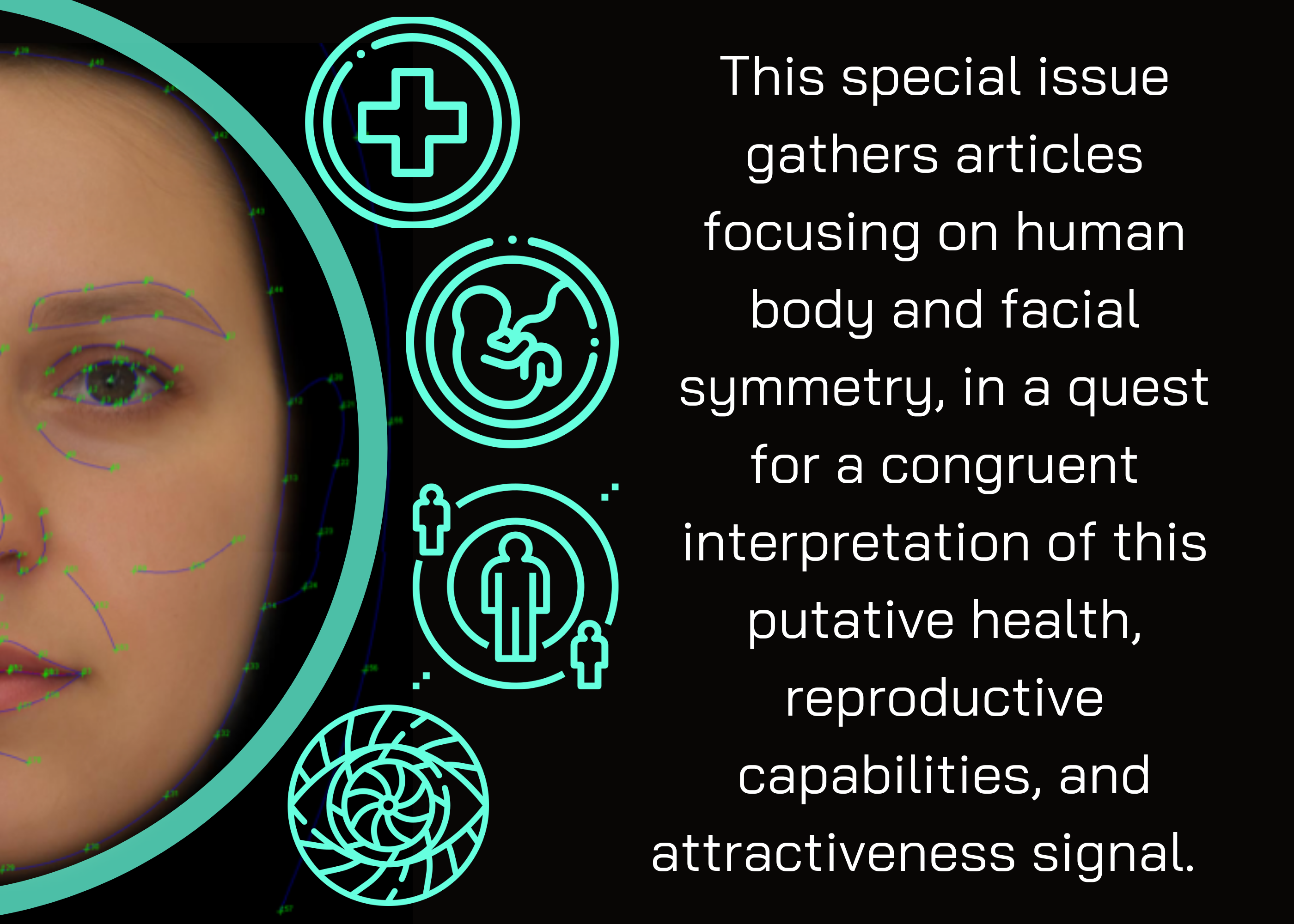Symmetry and Attractiveness
A special issue of Symmetry (ISSN 2073-8994). This special issue belongs to the section "Life Sciences".
Deadline for manuscript submissions: closed (20 January 2022) | Viewed by 1652
Special Issue Editors
Interests: human evolutionary biology; behavioural ecology; sexual preferences; reproduction
Interests: disease and human behaviour; sexual selection; biological signalling and social perception; human behavioural ecology
Special Issues, Collections and Topics in MDPI journals
Interests: Developmental Origins of Health and Disease (DOHaD); fetal programming; human evolutionary biology; reproductive ecology
Special Issue Information
Dear Colleagues,
Human facial and body symmetry has been a focus of research for several decades as a cue to developmental stability and genetic quality. The magnitude of fluctuating asymmetries has been suggested as an estimation of how efficient an organism is in developing bilaterally while facing environmental obstacles throughout ontogenetic development. Although multiple studies have found that symmetry is linked to both actual and perceived health or attractiveness, recent work using sizeable samples and new tools failed to replicate these results. Additionally, there is no clear evidence that symmetry translates into higher potential fertility and reproductive success. Similarly unexplored is the effect of inter-individual and between-population differences on perception of asymmetry as a cue to attractiveness. Additionally, a novel field of computational approaches assessing an individual’s health and biological qualities could provide further insights into signals possibly conveyed by human symmetry.
This issue gathers articles focusing on human symmetry in a quest for a congruent interpretation of this putative signal of biological condition.

Prof. Dr. Urszula Marcinkowska
Dr. Dariusz Danel
Dr. Magdalena Klimek
Guest Editors
Manuscript Submission Information
Manuscripts should be submitted online at www.mdpi.com by registering and logging in to this website. Once you are registered, click here to go to the submission form. Manuscripts can be submitted until the deadline. All submissions that pass pre-check are peer-reviewed. Accepted papers will be published continuously in the journal (as soon as accepted) and will be listed together on the special issue website. Research articles, review articles as well as short communications are invited. For planned papers, a title and short abstract (about 100 words) can be sent to the Editorial Office for announcement on this website.
Submitted manuscripts should not have been published previously, nor be under consideration for publication elsewhere (except conference proceedings papers). All manuscripts are thoroughly refereed through a single-blind peer-review process. A guide for authors and other relevant information for submission of manuscripts is available on the Instructions for Authors page. Symmetry is an international peer-reviewed open access monthly journal published by MDPI.
Please visit the Instructions for Authors page before submitting a manuscript. The Article Processing Charge (APC) for publication in this open access journal is 2400 CHF (Swiss Francs). Submitted papers should be well formatted and use good English. Authors may use MDPI's English editing service prior to publication or during author revisions.
Keywords
- fluctuating asymmetry
- good genes
- attractiveness
- health
- reproduction
- cognition
- honest signals
- ontogenetic development
- inter-individual differences
- computational algorithms





